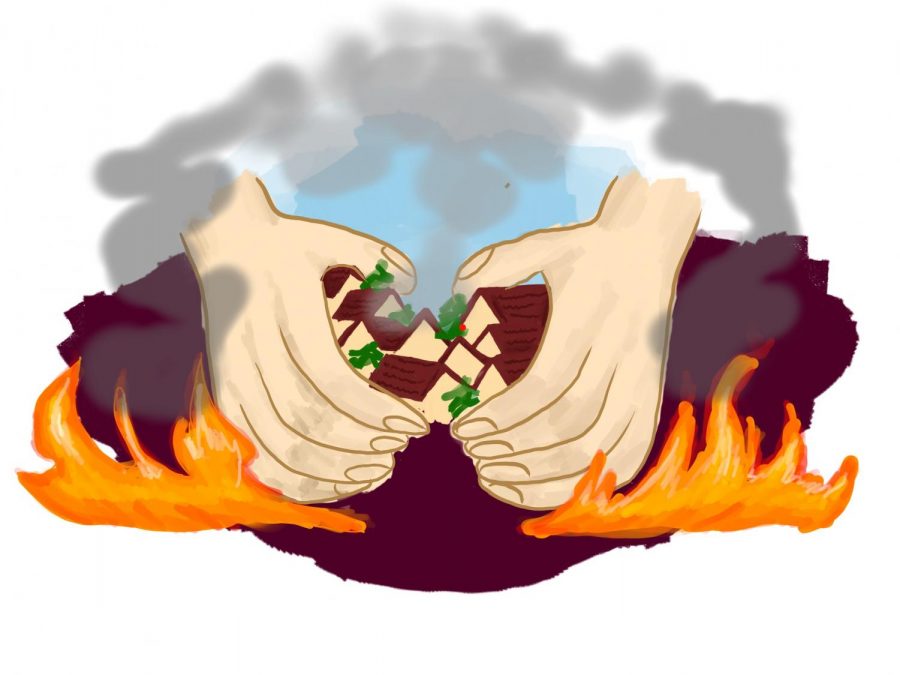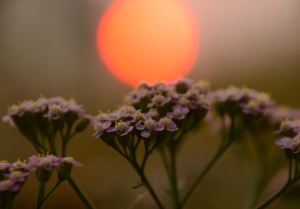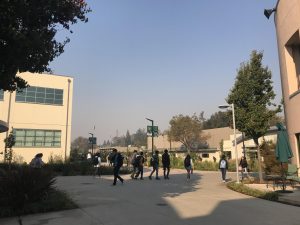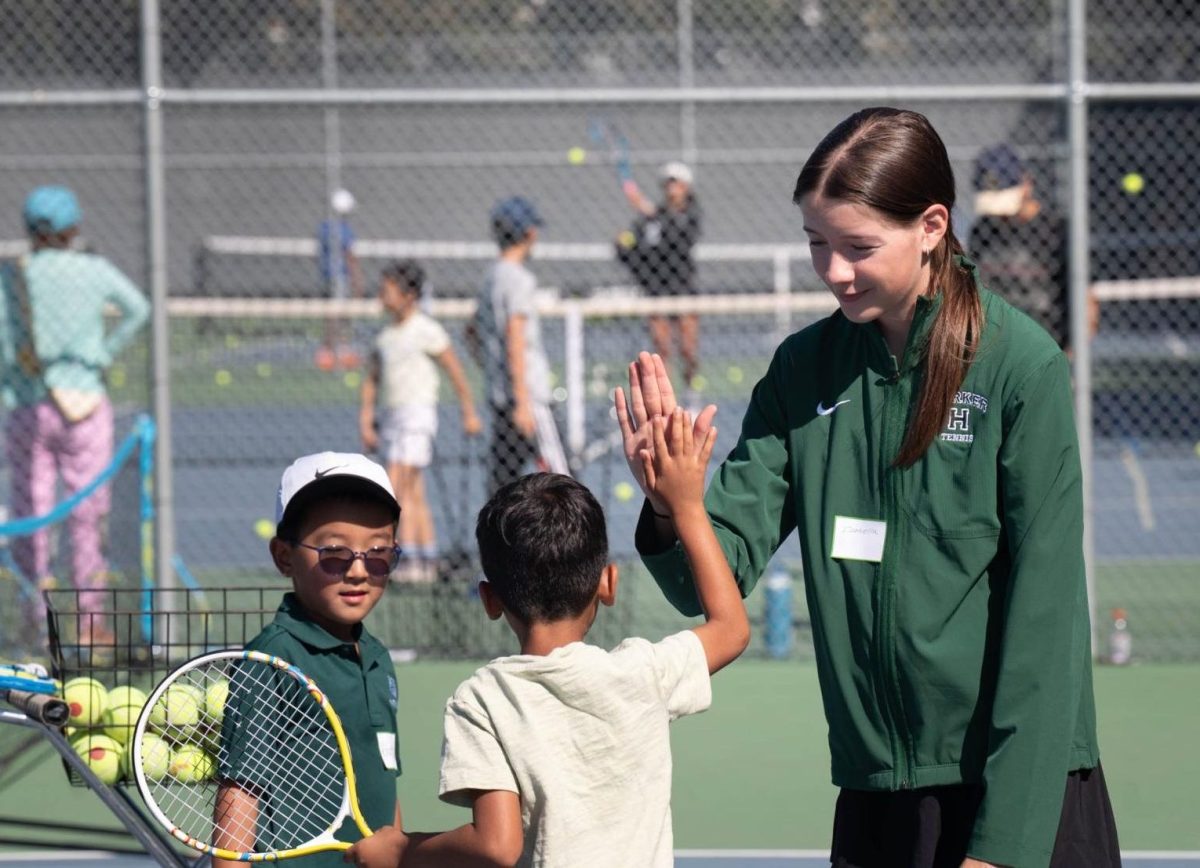Editorial: Reacting to disasters that affect us
December 8, 2018
While the Camp Fire in northern California and the Hill Fire and Woolsey Fire in southern California destroyed over 1,100 homes and left tens of thousands homeless, they also produced toxic smoke that clouded the streets of the Bay Area.
Many in the Harker community and elsewhere in the Bay Area wore masks or stayed at home to avoid air that was “very unhealthy” at times, according to experts.
It’s entirely reasonable to be concerned about the air quality and to worry about its impact on our health. It’s even understandable to envy other schools in the area that had days off. And, after a long string of wildfires, it’s not uncommon to feel the loss of motivation known as “disaster fatigue.”
So we must make a decision: do we actively combat apathy with empathy and fight disaster fatigue, or do we resign ourselves to it?
It’s easy to choose the latter, especially when it’s been so long and we feel so disconnected– after a rainy day brought our air quality back to normal, we returned to our daily routines. While our lives haven’t changed drastically, others’ lives have. What we feel won’t change that, so it’s our responsibility to give.
With that being said, here are some ways to fight disaster fatigue, and, in the process, make a tangible difference in someone’s life:
- Donate. Whether it’s to the Red Cross or a Go Fund Me page, donating money is the best way to aid relief efforts. Before making contributions, don’t forget to research organizations to ensure that your donation is put to good use.
- Volunteer. Donating time can be every bit as beneficial as donating money. Visit a shelter over the weekend to find out what how your efforts can make an impact.
- Reach out. Call family members and friends who live in wildfire-affected areas, even if you think that they weren’t directly harmed. A phone call, a text message, an email, even a few compassionate words– our active support is the best way to show others that we care and that we’re thinking of them in times of difficulty.
This piece was originally published in the pages of The Winged Post on December 6, 2018.


















![“[Building nerf blasters] became this outlet of creativity for me that hasn't been matched by anything else. The process [of] making a build complete to your desire is such a painstakingly difficult process, but I've had to learn from [the skills needed from] soldering to proper painting. There's so many different options for everything, if you think about it, it exists. The best part is [that] if it doesn't exist, you can build it yourself," Ishaan Parate said.](https://harkeraquila.com/wp-content/uploads/2022/08/DSC_8149-900x604.jpg)




![“When I came into high school, I was ready to be a follower. But DECA was a game changer for me. It helped me overcome my fear of public speaking, and it's played such a major role in who I've become today. To be able to successfully lead a chapter of 150 students, an officer team and be one of the upperclassmen I once really admired is something I'm [really] proud of,” Anvitha Tummala ('21) said.](https://harkeraquila.com/wp-content/uploads/2021/07/Screen-Shot-2021-07-25-at-9.50.05-AM-900x594.png)







![“I think getting up in the morning and having a sense of purpose [is exciting]. I think without a certain amount of drive, life is kind of obsolete and mundane, and I think having that every single day is what makes each day unique and kind of makes life exciting,” Neymika Jain (12) said.](https://harkeraquila.com/wp-content/uploads/2017/06/Screen-Shot-2017-06-03-at-4.54.16-PM.png)








![“My slogan is ‘slow feet, don’t eat, and I’m hungry.’ You need to run fast to get where you are–you aren't going to get those championships if you aren't fast,” Angel Cervantes (12) said. “I want to do well in school on my tests and in track and win championships for my team. I live by that, [and] I can do that anywhere: in the classroom or on the field.”](https://harkeraquila.com/wp-content/uploads/2018/06/DSC5146-900x601.jpg)
![“[Volleyball has] taught me how to fall correctly, and another thing it taught is that you don’t have to be the best at something to be good at it. If you just hit the ball in a smart way, then it still scores points and you’re good at it. You could be a background player and still make a much bigger impact on the team than you would think,” Anya Gert (’20) said.](https://harkeraquila.com/wp-content/uploads/2020/06/AnnaGert_JinTuan_HoHPhotoEdited-600x900.jpeg)

![“I'm not nearly there yet, but [my confidence has] definitely been getting better since I was pretty shy and timid coming into Harker my freshman year. I know that there's a lot of people that are really confident in what they do, and I really admire them. Everyone's so driven and that has really pushed me to kind of try to find my own place in high school and be more confident,” Alyssa Huang (’20) said.](https://harkeraquila.com/wp-content/uploads/2020/06/AlyssaHuang_EmilyChen_HoHPhoto-900x749.jpeg)














